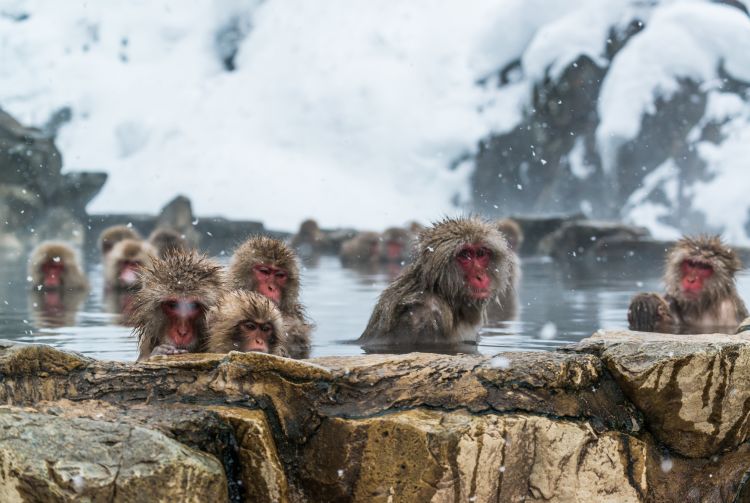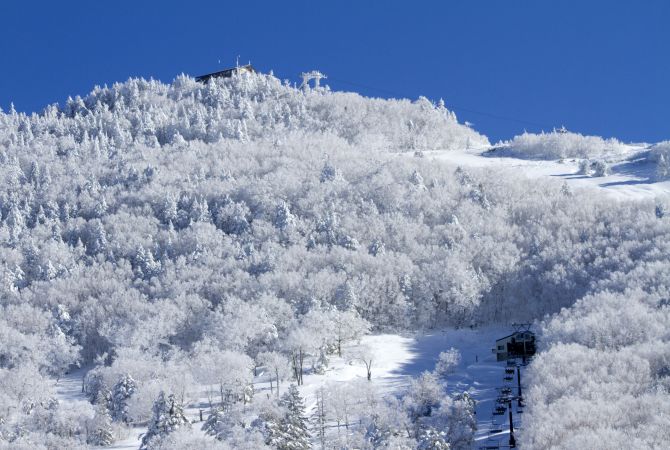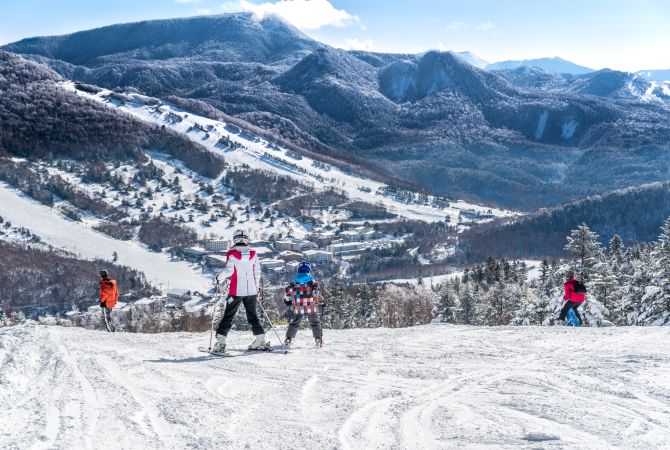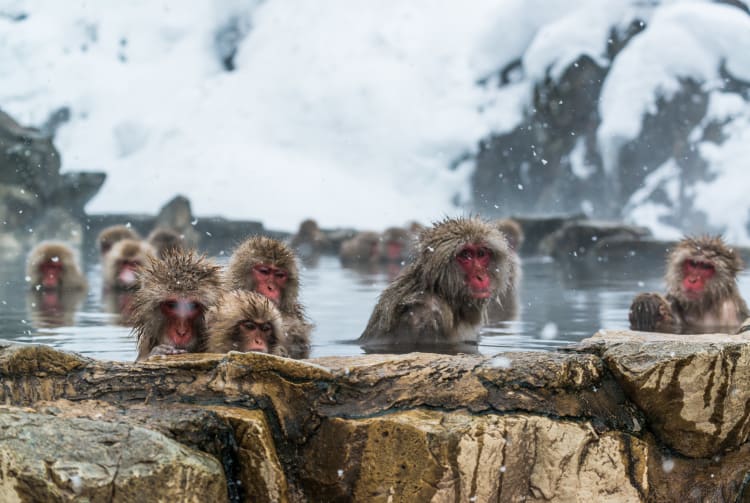Watch monkeys in the wild bathing in a hot spring

This troop of Japanese macaque monkeys has been observed soaking in the hot springs of Jigokudani, since 1964. A quiet ravine in the northern part of Nagano Prefecture is home to one of the world's most unique attractions. Jigokudani Yaen Koen (Snow Monkey Park) is one of the habitats of a population of Japanese macaques, and visitors have the opportunity to view these illusive creatures up close. During winter months, you can even see them soaking in the area's hot springs to keep warm.
Don't Miss
- The walk up to the Wild Snow Monkey Park through peaceful woodland
- Observing the way the monkeys behave
- The zen expressions of the older monkeys relaxing in the hot water
How to Get There
The monkeys live way out in the mountains, and getting there takes some time.
The good news is that buses run to Kanbayashi Onsen near the trail leading into the park from many popular destinations around the prefecture, including Nagano (40 minutes), Nozawa Onsen (30 minutes), Shiga Kogen (30 minutes), and Yudanaka and Shibu Onsen (10 minutes).
From Kanbayashi Onsen it's a 25 to 40-minute walk on a trail through the forest to the Snow Monkey Park. The trail is passable all year round.
Quick Facts
Japanese macaques, also called snow monkeys, have the northernmost range of the world's non-human primates
The park is also known as the Jigokudani Monkey Park, or the Jigokudani Yaen Koen

More fun than a bath full of monkeys
In the Shiga Kogen foothills along the Yokoyu River lies Jigokudani, or Hell's Valley. It's under deep snow for a third of the year and its rugged surroundings and geothermal activity conjure up a similarity with Hades. The surrounding forests and mountains are home to multiple troops of monkeys, numbering in the hundreds.
The Snow Monkey Park was established in 1964 as a facility where wild Japanese macaques can be observed in an environment without fences or cages. All this while providing others with the chance to learn about primate behavior.
The park also aimed to keep the monkeys in the area and away from their other great love, pillaging the neighboring farmland. Staff at the park have fed the monkeys daily ever since its opening. They live in the surrounding mountains, but come down for the free meals.
The monkeys visit the park year-round, and can be seen soaking in the hot springs in winter. December to March is usually the best time to witness them bathing.

Go ape over Japan's hottest macaques
The two-kilometer path from Kanbayashi Onsen runs through a quiet forest. During winter the trail is particularly beautiful. Signage along the path through the forest to the baths tells visitors about macaque social hierarchy, behavior and child rearing.
These laid back tree swingers have their own lives, and bathe as they please. They're also thoroughly used to humans being around, so you'll be able to get photos, but will usually be completely ignored.

Monkey see, monkey don't (park etiquette)
Don't feed them, touch, or threaten the monkeys. Do not stare or look into their eyes, as this can be seen as a sign of aggression. Don't get too close, and whatever you do, don't join them in the bath!
When the day is done
Once you've finished monkeying around, head to nearby Yudanaka or Shibu Onsen for a soak yourself. Or better yet, spend the night at one of the local inns for a monkey-free onsen experience.
For those planning some winter sports after a day with the macaques, Shiga Kogen and Nozawa Onsen are both a half-hour bus ride away.



























































